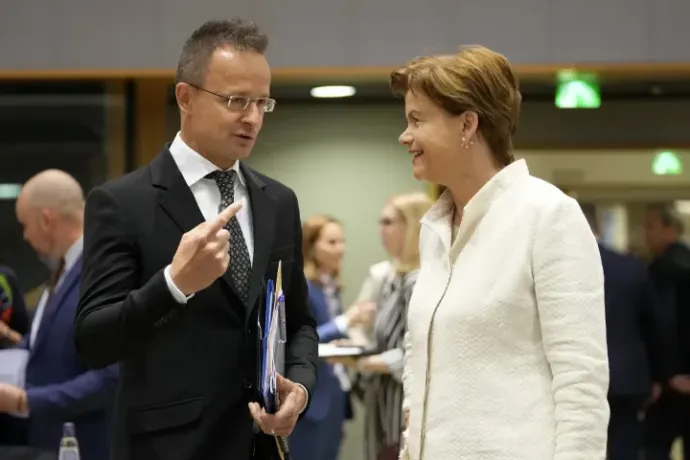"The crazy ideas about the introduction of a mandatory European military service are unacceptable", Hungarian Minister of Foreign Affairs and Trade Péter Szijjártó said at a press conference following Monday's meeting of EU foreign ministers in Brussels, MTI reports.
According to Szijjártó the vast majority of participants want to send more money and more weapons to Ukraine. He said that by introducing a compulsory European military service, due to the geographical proximity, they would send young people from Central Europe, including Hungarians, to the front. "We do not want to see Hungarian people on the front line of the Ukrainian-Russian war, and we do not want Hungarian young people to be taken to Ukraine, because this is not our war, and we have nothing to do with it.

EU member states agreed last Tuesday to use the profits from frozen Russian central bank assets to help Ukraine – mainly through military aid. According to a statement from the EU Council (made up of ministers of member states), the money will be used to support Ukraine's military, strengthen its defence industry and rebuild the country.
The Foreign Minister said that at Monday's meeting, his colleagues spoke favorably of an initiative to "have NATO member states shoot down Russian missiles over Ukraine's territory". He believes that such statements could have dangerous and tragic consequences.
Szijjártó still opposes the draft of the 14th sanctions package against Russia. He said that he was under great pressure, but stood by the government's position on the issue of another €6.5 billion to be released from the European Peace Facility for weapons supplies to Ukraine.
"And there was a huge ruckus on this, as the German, Lithuanian, Irish, Polish and other colleagues lashed out at me on this issue, but that couldn't sway us in our position (...)," he said.
Meanwhile, speaking prior to the meeting, Lithuanian Foreign Minister Gabrielius Landsbergis said: Hungary has gone too far with its vetoes, which weakens the EU's efforts to have a meaningful role in foreign affairs. "We looked into this and apparently about 41% of resolutions by (the) EU on Ukraine have been blocked by Hungary," he said. "It has gone very, very far," Landsbergis added. “We have to find a way, really, as a community to work around this.”
For more quick, accurate and impartial news from and about Hungary, subscribe to the Telex English newsletter!